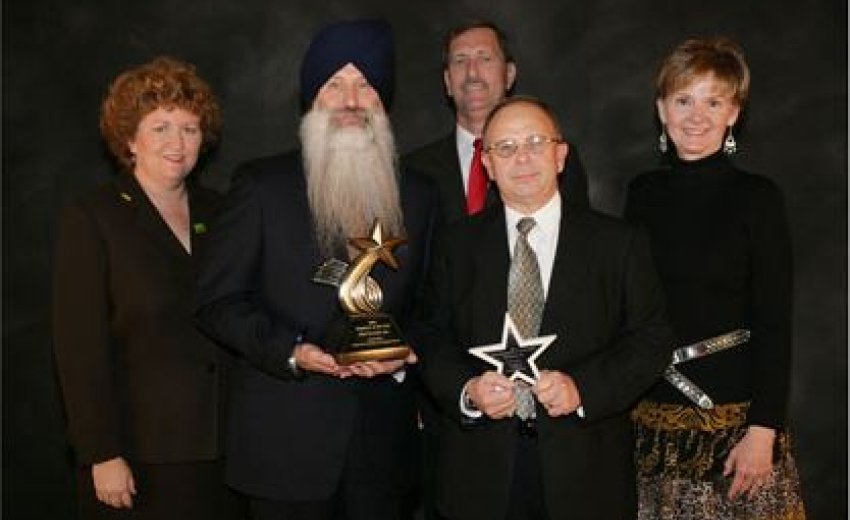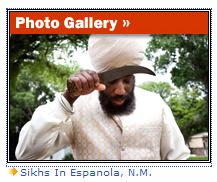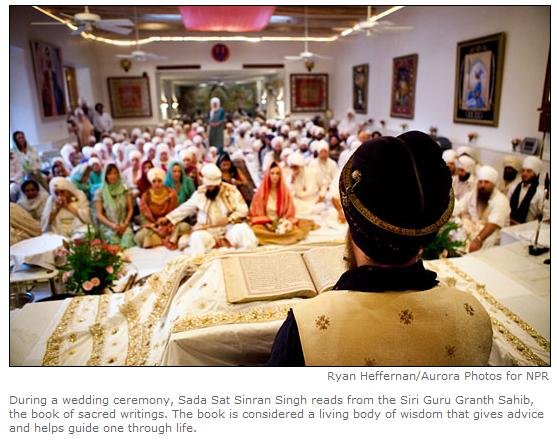
June 13, 2009 · In the high desert town of Espanola, N.M., you'll find a community of American Sikhs — converts to the 500-year-old Sikh religion from India. With a gold-domed temple as a backdrop, men and women live quiet lives of meditation, yoga and vegetarianism.
They also run a big business.
Next to the elaborate temple is a cluster of drab modular buildings that constitute the headquarters of Akal Security. The reach of this Sikh-founded and Sikh-managed company is huge.![]()
In most cities across the country, for example, the guards who run the metal detectors at the doors of federal courthouses work for Akal Security.
In just the past three years, Akal and its subsidiary, Coastal International Security, earned more than $1 billion in federal contracts. In addition to screening people at federal courthouses, Akal also guards immigration detention centers, NASA facilities, federal buildings in Washington, D.C., and embassies under construction from Ecuador to Iraq.
Origins Of Akal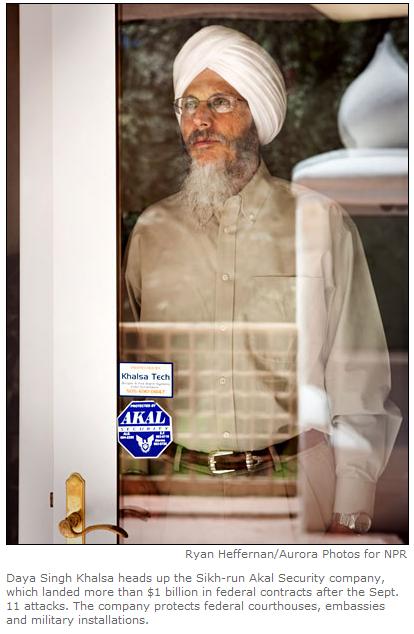 "Akal means undying or deathless," says Daya Singh Khalsa, president of Akal Security. "It was a battle cry for Sikhs."
"Akal means undying or deathless," says Daya Singh Khalsa, president of Akal Security. "It was a battle cry for Sikhs."
Like most Sikh men, Singh Khalsa wears a turban, and on religious occasions he carries a kirpan, or sacred sword, a symbol of the Sikh warrior-saint tradition of defending the defenseless. To this day, this tradition is at the philosophical heart of Akal Security.
"We feel very good about the role we play to keep thousands or hundreds of thousands of people safe when they visit federal facilities," Singh Khalsa says.
Yet, as president of a major security company that employs 10,000 guards, Singh Khalsa has to take pains to keep religion and business separate. "We're here to run a business," he insists. And because federal contracts prohibit guards from wearing headgear, you won't see any Sikhs manning the metal detectors.
Akal is a private for-profit company. When asked where all the profits go, Singh Khalsa says they're reinvested in the company; individual Sikhs who work for Akal make generous donations to Sikh Dharma, the nonprofit religious organization.
Sikh Dharma Of New Mexico
Espanola is the largest community of American Sikhs, composed of about 150 families. It was founded by Yogi Bhajan, a Sikh yoga master who came to the U.S. from India in 1968 to teach kundalini yoga. By the time he died in 2004, Yogi Bhajan was recognized as the founder and spiritual leader of what are now loosely called "Western Sikhs," to distinguish them from their Indian counterparts.
Akal president Singh Khalsa was born Daniel Cohn, the son of a New York department store executive; he grew up in the Connecticut suburbs, graduated with an English degree from Amherst College, and drifted to the then-new Sikh colony in New Mexico to pursue his interest in yoga and meditation.
All Western Sikhs have the last name Khalsa, which means "purity."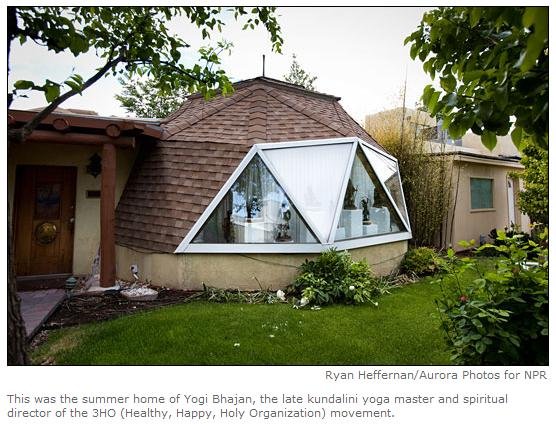 The life of a devout Sikh is rigorous: up at 4 a.m. for a cold shower, then 2.5 hours of prayers and meditation. They do not drink alcohol or eat meat. And no one gets a haircut — ever. Their hair is coiled under their turbans.
The life of a devout Sikh is rigorous: up at 4 a.m. for a cold shower, then 2.5 hours of prayers and meditation. They do not drink alcohol or eat meat. And no one gets a haircut — ever. Their hair is coiled under their turbans.
Rules that prohibit Sikhs from joining American law enforcement because they don't cut their hair may be softening. Last year, the Espanola Police Department hired its first bearded, turbaned policeman — Officer Khalsa — though he has since moved on.
Five years after the death of their spiritual leader, the Sikh community in New Mexico appears to be healthy. Some families have moved away; others have come. Akal has lost some business, but there is always next year. And in an alcove inside the gold-domed temple, there is someone — day and night — reading the sacred songs of the Sikhs.
